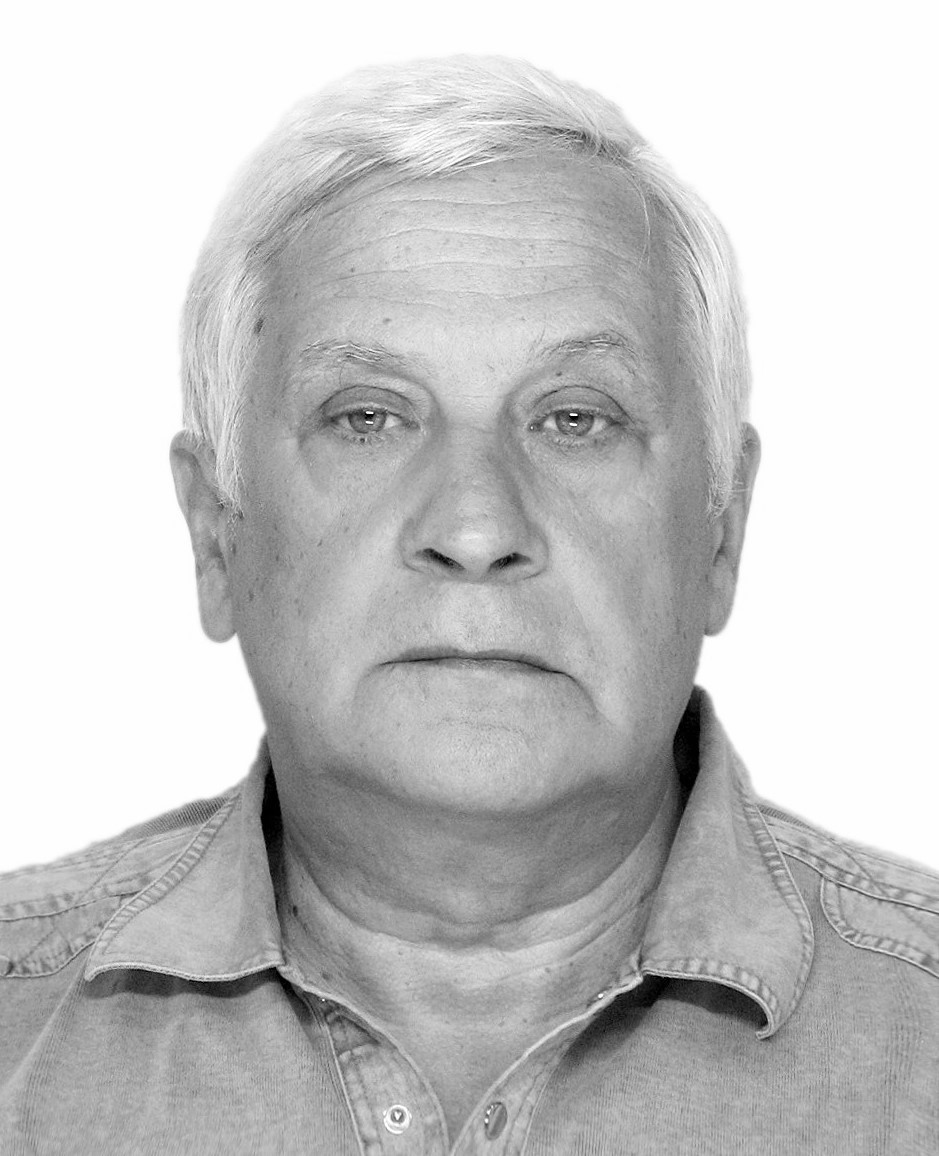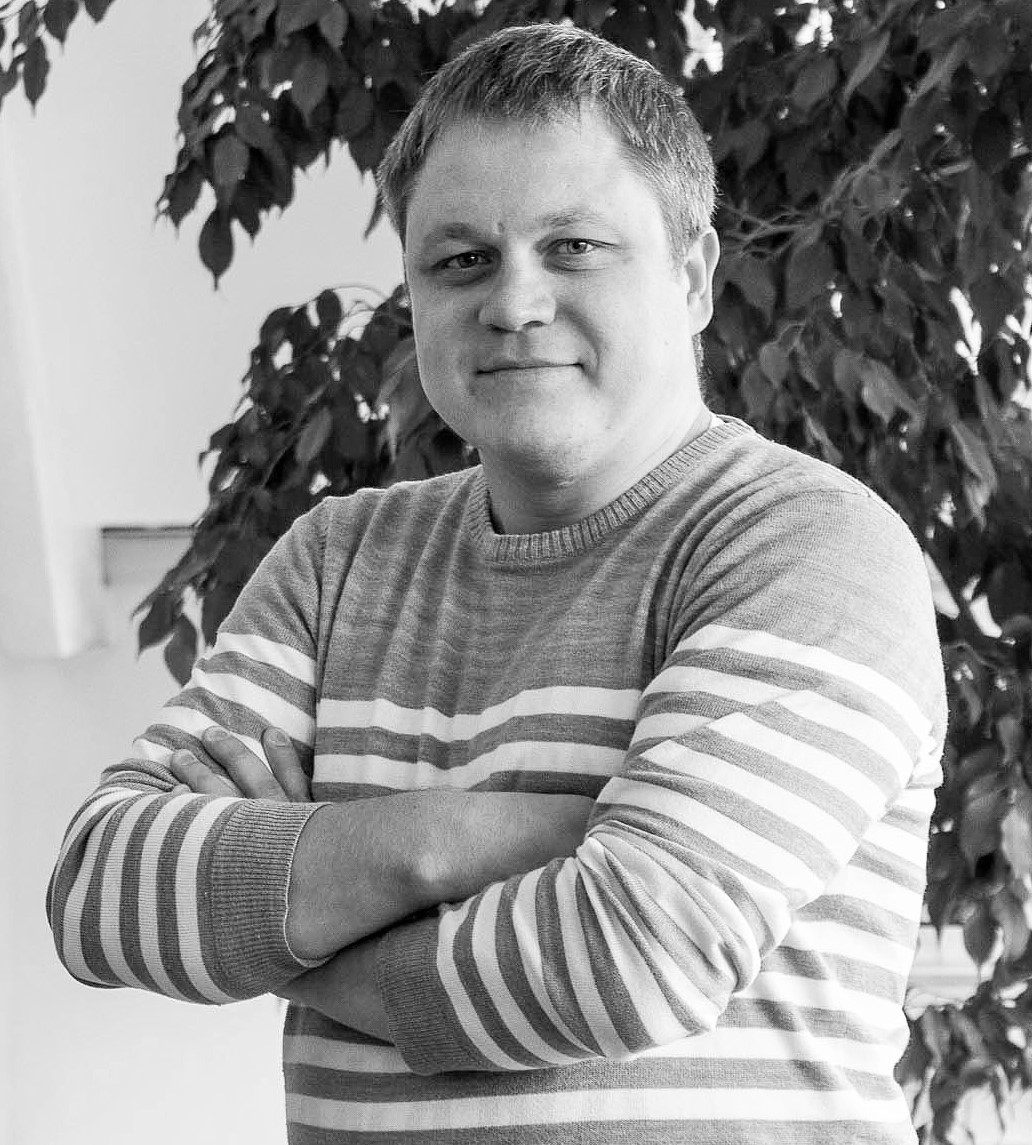DISCONTINUOUS CONTROL SYSTEMS
 |
|
Anton V. Utkin, Head of Laboratory No. 37 |
Under the current name, the Laboratory was created in 2017 through reorganizing an initiative group informally led by Dr. Sci. (Eng.), Prof. Victor A. Utkin. The scientific interests of this group lie in fundamental, classical control theory in technical systems, and the problems investigated for 25 years determined the research area of the new Laboratory: methods to analyze and design discontinuous control systems operating in a sliding mode. Currently, the Laboratory staff includes Dr. Sci. (Eng.) Anton V. Utkin (Head of the Laboratory), Dr. Sci. (Eng.) Svetlana A. Krasnova, Dr. Sci. (Eng.) Sergey A. Kochetkov, Dr. Sci. (Eng.) Victor A. Utkin (recently moved to Laboratory No. 16), and other employees. In addition, postgraduate and graduate students are constantly involved in research. Today, Laboratory No. 37 is a young and dynamically developing team.
The statements and solutions of control problems considered in Laboratory No. 37 are remarkable for using methods of the theory of discontinuous control systems and decomposition-based control design methods with creating different-pace motions in closed loop systems. Within these approaches, the fundamental problems of control theory (feedback control design and construction of various state observers) are considered. A block control approach was developed for solving the first problem (stabilization, invariance with respect to exogenous disturbances, tracking problem, and autonomous control). A cascade synthesis method was proposed for solving the second problem (construction of state observers for linear and nonlinear multidimensional dynamic systems with uncertainty and unmatched exogenous disturbances).
The following fundamental problems of the control theory were solved using these methods:
➢ The concept, methodology, and procedures of the decomposition design of invariant tracking systems were developed for linear and nonlinear multidimensional, multichannel plants with exogenous uncontrolled disturbances, incomplete measurements, and target condition uncertainty. For the first time in the world practice, Laboratory’s employees introduced: (a) the concept and organization principles of the joint block form of observability and controllability with respect to the output variables considering different exogenous disturbances; (b) a complex approach to mixed variables estimation without separating the observation subproblems for the unmeasured variables of the state vector and exogenous disturbances. These methods have several advantages: simplify the controller structure; significantly decrease the requirements on the volume of a priori information about the plant and its environment; expand the class of systems where the asymptotic convergence of output variables to given trajectories can be ensured without extending the state space by introducing exogenous dynamic models of disturbances and reference signals. The obtained results significantly contribute to solving a fundamental problem: control of the output variables of multichannel plants operating under uncertainty and incomplete measurements.
 |
|
Victor A. Utkin |
➢ Within the block approach, the concept, methodology, and procedures of the decomposition-based design of robust controllers were developed for an applications-relevant class of linear time-invariant systems in which the structural properties of controllability determined by the nominal system are preserved under parameters variations in given ranges. For the first time in the world practice, Laboratory’s employees developed constructive decomposition-based procedures of feedback control design for this class of systems with a given degree of stability of the closed loop system under all admissible values of the uncertain parameters. The methods are universal: they involve the structural properties of controllability of the plant’s operator. As expected, their extension to linear time-varying systems and some classes of nonlinear systems may form a new research area in the structural design of robust controllers.
 |
|
Svetlana A. Krasnova |
➢ Decomposition-based design procedures were developed for control systems of technical objects with uncertainty and incomplete measurements (manipulator robots, electric drives, internal combustion engines, and aircraft). The cascade state observers designed for the information support of the basic combined control laws ensure high dynamic accuracy of control systems in different operating modes of these objects under exogenous disturbances, target condition uncertainty, and an incomplete set of measuring devices. (This fact was confirmed by simulation results.) A comprehensive approach to the observation problem significantly simplified the controller structure. Each control system was developed considering the peculiarities of the corresponding object. At the same time, a unified methodology and fundamentally new, universal and efficient, control design approaches were created for a wide class of complex technical objects operating under uncertainty.
 |
|
Sergey A. Kochetkov |
➢ In the class of linear systems, identification problems were solved for unknown plant parameters using the theory of discontinuous systems. In particular, the characteristic polynomial of a linear multidimensional single-input single-output system with complete parametric uncertainty was restored by measuring the output variable only. The identification problem was also solved for linear systems with relay measurements by supplying a vibrolinearizing signal to the plant’s input and reducing the observation problem at low frequencies to the continuous case.
➢ The concept, methodology, and procedures of the cascade synthesis of the state observers of dynamic systems were developed. These results provide a unified approach to analyzing the solvability of the observation problem and implement the decomposition-based method for designing state observers for a wide class of linear and nonlinear multidimensional dynamic control objects with exogenous disturbances and parametric uncertainty of the plant’s operator. For the first time in the world practice, Laboratory’s employees developed: (a) methods for observing nonlinear systems under different-type exogenous disturbances without introducing the latter’s exogenous dynamic models; (b) decomposition-based methods for designing state observers with continuous and discontinuous corrections operating in a sliding mode. As opposed to standard approaches, the developed observation subsystems have the robustness to the parametric uncertainty and invariance with respect to the exogenous disturbances. Moreover, they require neither a detailed mathematical model of the plant nor reconfiguration depending on the presence or absence of exogenous disturbances. These methods significantly expanded the class of systems where the output variables and the state observers mentioned above can be used to restore in real time the unmeasured variables of the state vector and the exogenous disturbances. The obtained results significantly contribute to solving another fundamental problem: observation of nonlinear dynamic systems.
➢ A new class of feedback systems and state observers was developed by introducing S-shaped local feedback laws and continuous corrections of observers (sigma functions). With such nonlinear control laws, the control and state constraints are considered at the design stage of controllers and state observers; the given accuracy of control and estimation is ensured by increasing the gains in the feedback loop and corrections in the observer with preserving the general motion decomposition into different-pace components.
➢ The concept, methodology, and procedures of the decomposition-based design of invariant tracking systems were developed for linear and nonlinear multidimensional, multichannel plants with uncontrolled exogenous disturbances, incomplete measurements, and incomplete information about the reference signal. The developed approaches are based on the concept and organization principles of the joint block form of observability and controllability with respect to the output variables considering different exogenous disturbances, including necessary and sufficient conditions of its existence and step-by-step procedures to find it.
➢ Within the block approach, the concept, methodology, and procedures of the decomposition-based design of robust controllers were developed for an applications-relevant class of linear time-invariant multidimensional systems in which the structural properties of controllability determined by the nominal system are preserved under parameters variations in given ranges. For the first time in the world practice, Laboratory’s employees developed constructive feedback control design procedures for this class of systems with the following features:
- a given degree of stability of the closed loop system under all admissible values of the uncertain parameters;
- given variation ranges for the state-space variables when using sigmoidal local links.
➢ Unique results were obtained in the theory of invariance: invariant systems with respect to unknown unmatched disturbances were constructed using relay-continuous controls. (A disturbance not belonging to the control space is said to be unmatched.) The VORTEX algorithm developed in the Laboratory is applicable in the feedback loop and the observation device.
➢ Approaches were proposed to compensate the noneliminable imperfections of discontinuous controls (hysteresis) by supplying an additional high-frequency signal to their input. Due to the vibrolinearization effect, it becomes possible to use continuous control design methods at low frequencies.
➢ The block structure of controllable and observable linear systems was employed to optimize (minimize) the gains by selecting the eigenvalues and eigenvectors in modal control with a given stability margin.
Laboratory’s employees solved several applied problems:
➢ Methods were proposed to design different-type electric drives, particularly sensorless electric drives (without sensors of mechanical variables).
➢ Methods were proposed to control manipulator robots considering the dynamics of actuators (electric drives) under incomplete measurements of the state vector and parametric and functional uncertainties in the plant model.
➢ Algorithms were developed to control a mobile robot in the motion tracking problem with a given trajectory.
➢ A fuel supply control system was developed for internal combustion engines (ICE) by the relay lambda sensor data. In particular, a state observer was constructed for the ICE air duct parameters based on pressure measurements at the intake manifold. This control system was adopted in the educational process at Moscow Automobile and Road Construction State Technical University (MADI) and used at NPP Elkar (Moscow) when developing microprocessor control systems for domestic engines. Also, it was used at JSC AVTOVAZ (Togliatti) when creating software for Yanvar’ controllers.
➢ Original parametric identification algorithms were used to develop a prototype of a portable profilometer (the project entitled “Study, Design, and Manufacture of an Experimental Prototype of a Portable Profilometer to Check Surface Microgeometry in Production Conditions,” State Registration No. 0120.0950414).
➢ Cascade synthesis algorithms of feedback laws were used to develop a control system for a manipulator robot at Korolev RSC Energia (Korolev, the Moscow Region).
➢ The observer synthesis methodology was used to develop sensorless asynchronous electric drives at SPO Arktika (Severodvinsk).
➢ A special course on decomposition-based methods for the analysis and design of automatic control systems was developed and adopted in the educational process at Bauman Moscow State Technical University.
➢ Within the block approach, a set of control problems were solved for a steam generator (turbine unit) under parametric uncertainty of the plant model, uncontrolled exogenous disturbances, and incomplete measurements of the state vector.
➢ A control mock-up was created for the motor–belt drive–inverted pendulum complex within the applied research of the Institute’s robotics cluster.
➢ The basic methodological regulations and the corresponding formal methods and models were developed to control the system of compulsory social insurance against accidents at work and occupational diseases (the Social Insurance Fund of the Russian Federation). These mathematical methods considerably fill the gap in the scientific-methodological and applied foundations of the effective system of compulsory social insurance in a market economy.
The Laboratory has a young scientific school led by Victor A. Utkin.
The Laboratory staff has published over 400 papers and 6 monographs.
